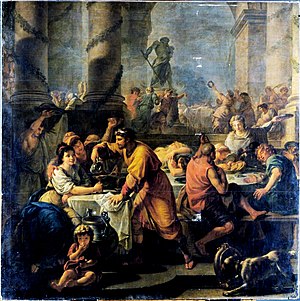I like it. And Dec 25th is not such a far fetched idea as some think.
The earliest source stating 25 December as the date of birth of Jesus is likely a book by Hippolytus of Rome, written in the early 3rd century. He based his view on the assumption that the conception of Jesus took place at the Spring equinox which Hippolytus placed on 25 March, and then added nine months to calculate the date of birth.
We always hear about the pagan feasts on Dec 25 that they wanted to replace with a Christian theme, but Hippolytus theory was not a crazy theory. Maybe he was right?
The earliest source stating 25 December as the date of birth of Jesus is likely a book by Hippolytus of Rome, written in the early 3rd century. He based his view on the assumption that the conception of Jesus took place at the Spring equinox which Hippolytus placed on 25 March, and then added nine months to calculate the date of birth.
We always hear about the pagan feasts on Dec 25 that they wanted to replace with a Christian theme, but Hippolytus theory was not a crazy theory. Maybe he was right?
Despite the ever increasing madness and chaos we see this world
descending into, I wish you peace and joy this Christmas season


